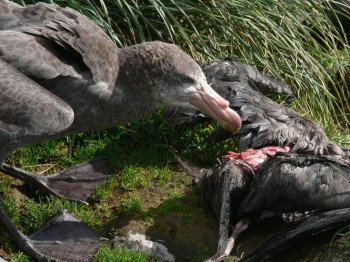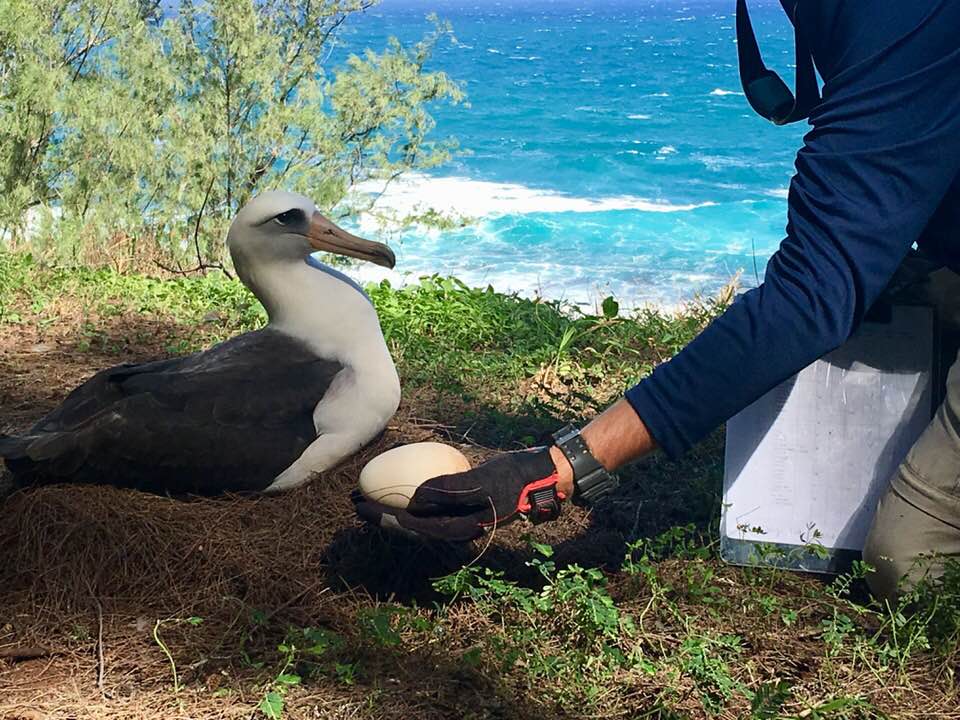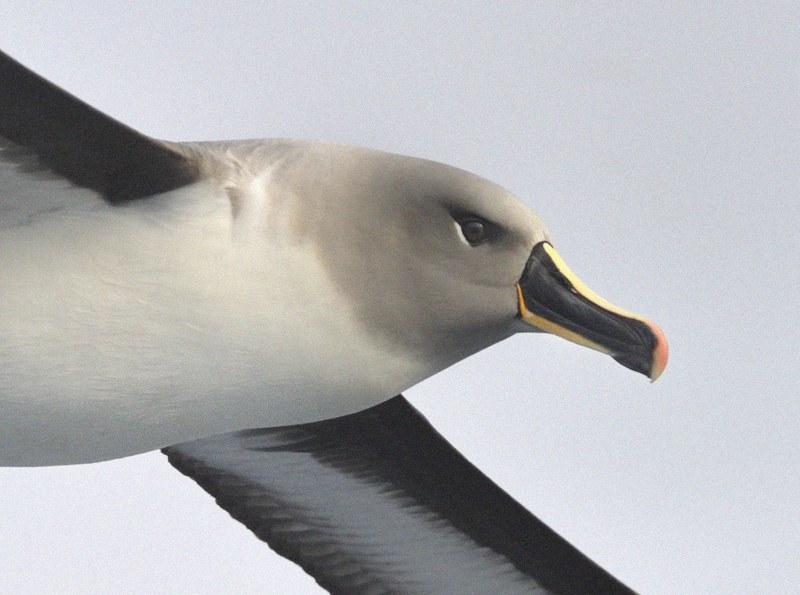Amanda Kuepfer (Falkland Islands Government Fisheries Department) and colleagues have produced the fourth version of the National Plan of Action for Reducing Incidental Catch of Seabirds in Trawl Fisheries for the Falkland Islands (Islas Malvinas)*. Previous versions were produced in 2004, 2009 and 2014.
The Report’s Executive Summary follows:
“Globally, there is a strong resolution to reduce the incidental mortality of seabirds associated with fishing activities. The commitment of the Falkland Islands Government (FIG) to addressing the issue is reflected in fisheries policy and licence conditions, and the development and implementation of a National Plan of Action for reducing the incidental catch of seabirds (NPOA-S). To this extent, the Falkland Islands fishing Industry has been working pro-actively and collaboratively with the Falkland Islands Fisheries Department (FIFD), with individual companies having invested considerably to assist the research and development of improved mitigation measures.
Whilst the Falkland Islands fishery has been playing a leading role in seabird-bycatch mitigation globally, the Islands’ trawl fleet continues to incur incidental catches of seabirds. In line with obligations related to local and international policies, laws and conventions, a precautionary approach to management is warranted, in order to improve the conservation status of vulnerable populations, and to buffer the seabird populations against future environmental changes.
The Falkland Islands National Plan of Action for reducing incidental catch of seabirds in trawlers (FI NPOA-S-T)-2019 outlines a four-year strategy with the overall objective to reduce or, if practicably possible, eliminate the mortality of seabirds resulting incidentally from trawling activities, and to help achieve and maintain a favourable conservation status of Falkland Islands breeding seabirds.
In order to deliver the overall aim of the FI NPOA-S-T-2019, a suit of objectives have [sic] been developed. Following FAO guidelines and previous versions of the FI NPOA-S-T, the objectives will encompass the following interconnected components: (i) observer programmes / coverage; (ii) research, development and implementation of mitigation measures; (iii) bycatch reduction objectives, and (iv) education, training and outreach.
The overall accountability for achieving the objectives of the FI NPOA-S-T-2019 lies with the FIG through the FIFD. However, this does not mean that all components of the Plan need to be carried out by the FIFD. The Falkland Islands Seabird Bycatch Advisory Committee (SBC) has the task to regularly evaluate and review progress made, identify any gaps in performance, and provide annual work priorities in an adaptive manner. The SBC is composed of representatives from FIG, Industry, Falklands Conservation (FC) and the Agreement on the Conservation of Albatrosses and Petrels (ACAP) Coordinator for the UK Overseas Territories (Joint Nature Conservation Committee (JNCC)).
In adopting the FI NPOA-S-T-2019, the Falkland Islands will ensure compliance with domestic and international polices and conventions and will continue to build on its reputation for responsible and sustainable management of its fishery.”
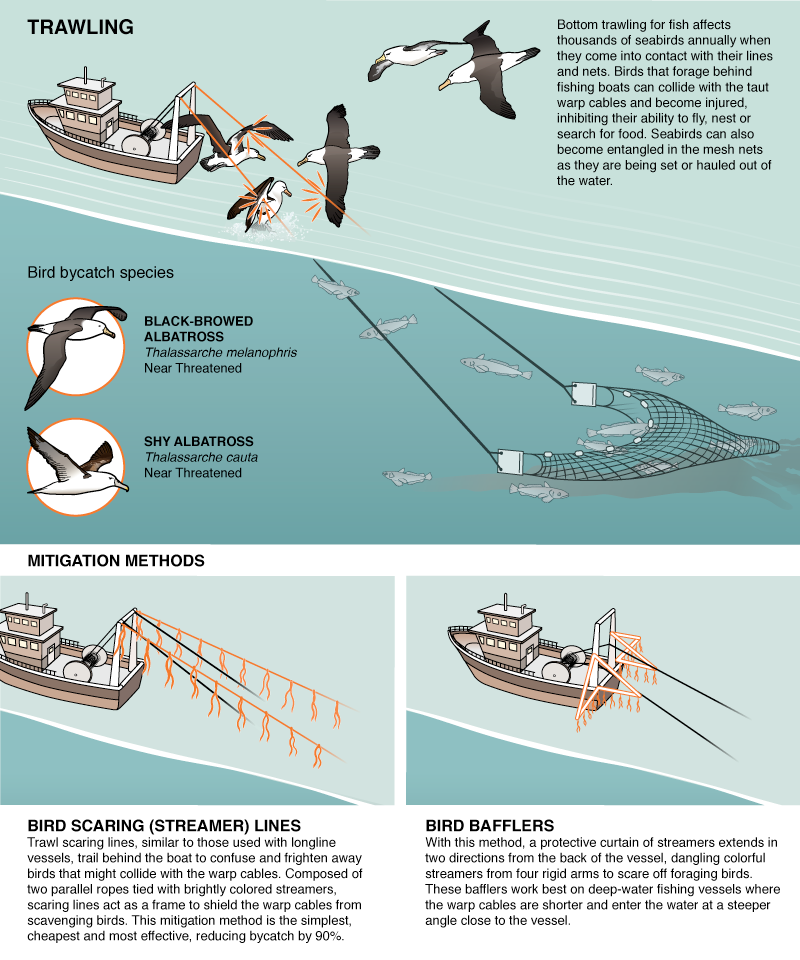
With thanks to Amanda Kuepfer.
Reference:
Kuepfer, A., Crofts, S., Tierney, M., Blake, D. &, Goyot, L. 2018. Falkland Islands National Plan of Action for Reducing Incidental Catch of Seabirds in Trawl Fisheries, 2019 (FI NPOA-S-T-2019). Stanley: Fisheries Department, Directorate of Natural Resources, Falkland Islands Government. 42 pp.
John Cooper, ACAP Information Officer, 21 January 2019
*A dispute exists between the Governments of Argentina and the United Kingdom of Great Britain and Northern Ireland concerning sovereignty over the Falkland Islands (Islas Malvinas), South Georgia and the South Sandwich Islands (Islas Georgias del Sur y Islas Sandwich del Sur) and the surrounding maritime areas.
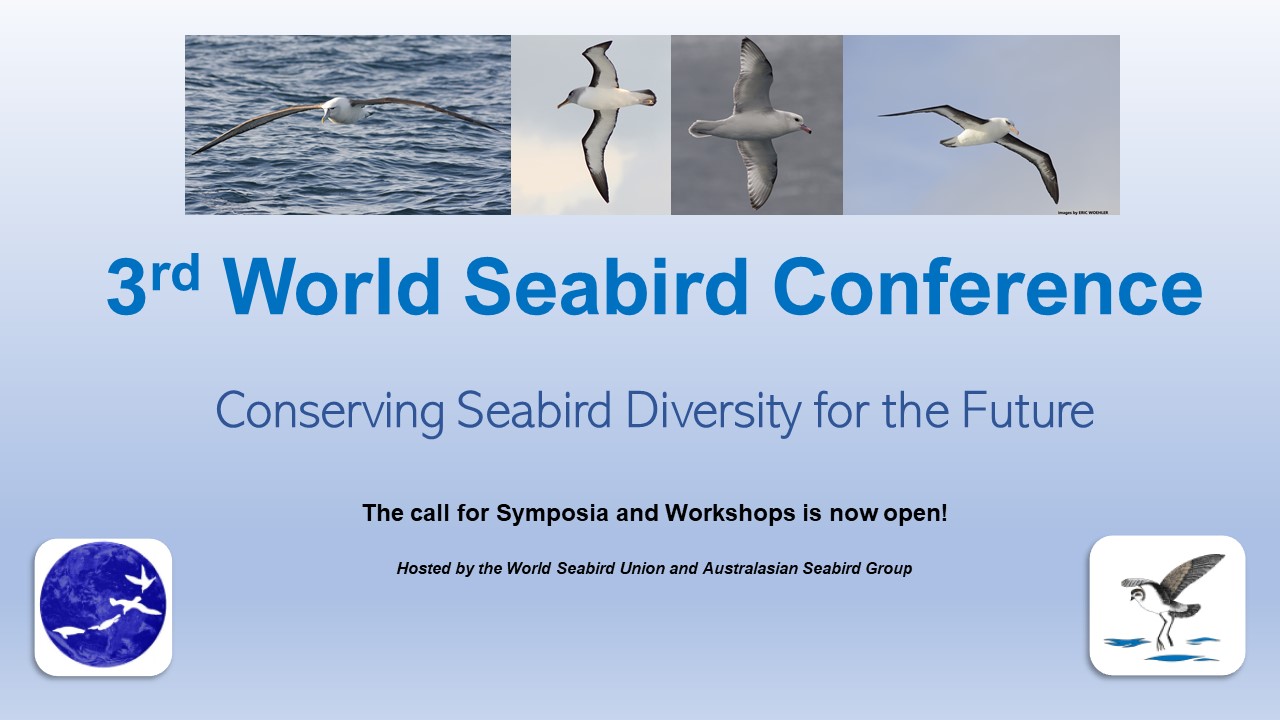

 English
English  Français
Français  Español
Español 